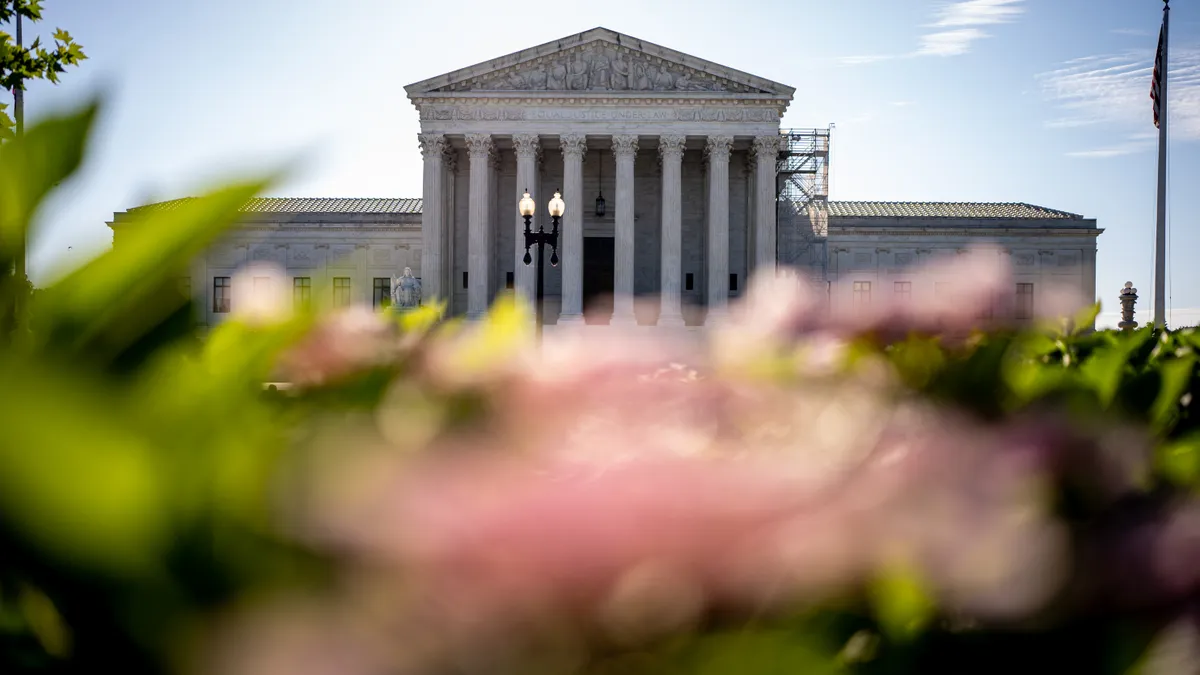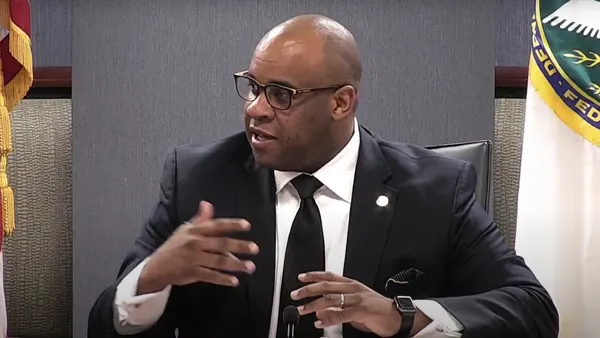Dive Brief:
- The U.S. Supreme Court overturned the Chevron doctrine on Friday in Loper Bright Enterprises et. al. v. Raimondo, Secretary of Commerce, et. al., in a blow to federal agencies.
- In a 6-3 vote, the high court overruled a 1984 decision in Chevron v. Natural Resources Defense Council that gave way to the doctrine, which required federal courts to give deference to agencies’ reasonable interpretation of ambiguous statutes.
- “The Administrative Procedure Act requires courts to exercise their independent judgment in deciding whether an agency has acted within its statutory authority, and courts may not defer to an agency interpretation of the law simply because a statute is ambiguous,” the high court ruled.
Dive Insight:
The decision to nix Chevron could have massive implications for law enforcement by regulatory entities such as the Environmental Protection Agency and the U.S. Department of Labor.
Attorneys with the law firm Fisher Phillips said the ruling “upended the legal world” in “a move that will have a major impact ... for years to come.”
“[T]he Court tossed out [the Chevron doctrine] in favor of judicial interpretation, enabling courts to strike down agency rules much more easily,” they said in an analysis for the firm.
Varu Chilakamarri, a partner with global law firm K&L Gates, said the decision could be seen as “putting regulated communities on a more equal-footing with the agencies.”
“The overturning of Chevron means that in many cases, industry’s interpretation of the law will be viewed as just as valid as the agency’s. It will be some time before we see the effects of this decision on the lawmaking process, but going forward, agency action will be under even greater scrutiny and there will likely be more opportunities for the regulated community to challenge agency rules and adjudications,” Chilakamarri said in comments emailed to HR Dive.
In a dissenting opinion, Justice Elena Kagan said the Chevron decision has “served as a cornerstone of administrative law” for 40 years.
“Congress knows that it does not — in fact cannot — write perfectly complete regulatory statutes. It knows that those statutes will inevitably contain ambiguities that some other actor will have to resolve, and gaps that some other actor will have to fill. And it would usually prefer that actor to be the responsible agency, not a court,” Kagan wrote. “A rule of judicial humility gives way to a rule of judicial hubris. In recent years, this Court has too often taken for itself decision-making authority Congress assigned to agencies.”
















